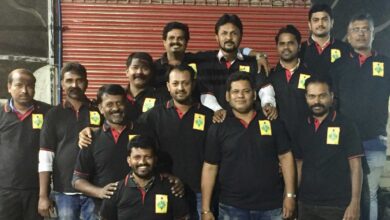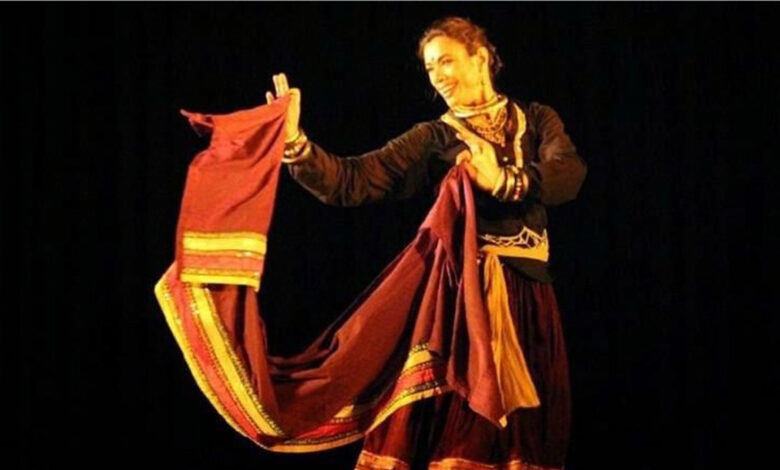
As one who grew up admiring this specific fairy tale, ‘Beauty and the Beast’ (French: La Belle et la Bête), I have forever been in love with this song. First published in 1740 in La Jeune Américaine et les contes marins (The Young American and Marine Tales), this bedtime story is a great portrayal of virtue and seeing grace despite one’s appearance.
But is it that easy!? Is it as convenient and ecstatic as this fairy tale of the Common Era!? Isn’t rather a society that marginalises physical ugliness oppressive?! None chooses the arrangement of their facial features any more than they choose their skin tones, yet don’t people discriminate based on how beautiful or ugly someone looks, all the time, everywhere?!
Several reports and studies explain how unattractive or less attractive people are often treated poorly than physically attractive people at high school and work, globally. It is said that one reason for the pervasive interest in Artificial Intelligence is that it has the potential to reduce the degree of one of the most prominent biases of lookism.
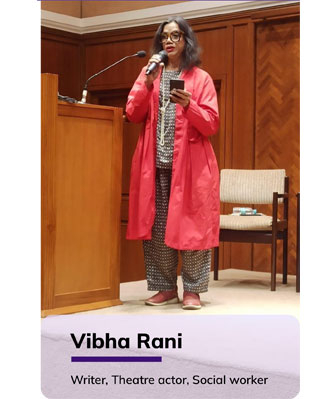
So, since the times of ‘Beauty and the Beast’ until today, we still loathe discrimination based on prejudice against the unattractive and towards the physically fascinating! Even in the year of the water rabbit, we consider a face having clean, symmetrical features and snow-white skin colour “attractive”, and “beautiful!”
Ask our gorgeous idol, Vibha Rani, who has been at the receiving end of lookism and colour bias all her life, “I faced discrimination since I was a child because I am not that fair and rather have ‘irregular’ and ‘unattractive’ face than have a prototypical face. Comments like ‘have you seen your face in the mirror’ were common when I would tell them that I wished to be an air hostess. It would hurt my humble, considerate heart.” She reminisces, “I then wanted to learn dancing and be like legendary Kathak dancer and actress, Sitara Devi, but was told that it is not a dignified profession and that I would be judged for my character if I chose to be a dancer.” Today, Vibha Rani is a veteran author with around thirty-eight books written by her in various genres of literature like short stories, poetry,
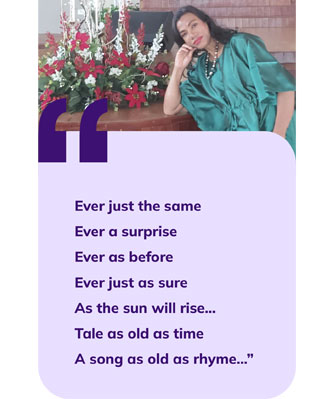
plays, and satires; her latest collection of short stories on Muslim discourse titled ‘Aatishdaane’ being launched on International Women’s Day 2023. She is a beloved writer, poet, playwright, actor, folk presenter, social activist, and philanthropist, who even sings folk in Maithili and Hindi languages. Her poems, stories, and plays have been translated into languages like Gujarati, Marathi, Oriya, Telegu, Bangla, Tamil, Urdu, and English. She has worked in several films like Shamshera and Laal Kaptaan and web series like Maharani 1 and Taaza Khabar; her latest appearance in ‘Tikuli’ on Bhojpuri is now broadcasted on the Zee Ganga channel. She has written more than twenty plays Doosra Aadmi, Peer Parayee, Life is not a Dream, Main Krishna Krishn Ki, Ek Nayi Menka, and Bhikharin. Winner of several awards including Nemichandra Jain for Best Playwriting for the play ‘Pregnant Father’ in 2021, Lakshmi -Hari Memorial Award for her novel ‘Kaniya Ek Ghungharua wali’ (Bride With the Single Ghunghru) in Maithili language, Katha Award, Ghanshyamdas Saraf Sahitya Samman, Dr. Maheshwari Singh ‘Mahesh’ Sarvottam Sahitya Samman, Mohan Rakesh Samman Women Achiever Award, Best Suggestions Awards, 1st Rajiv Saraswat Samman, 1st Vyangy Rachnakar Samman, Sahityasevi Samman, Best female Actor Award, and Vishnudas Bhave Samman, Vibha Rani is a living legend who broke the shackles of the shame and self-blame and rose to her stunning destiny as the Phoenix. She explains how her being the youngest daughter of an ambitious and benevolent mother, who studied well to become the Gold Medallist and later principal at a government school in 1936, an era that is believed to be the real emancipation of Indian women, inspired her to never give up on her dreams. Her mother was a continuous support and stimulus to her, whilst her difficult yet exciting years.
After her father passed away and later because of her mother’s persistent fear of social disapproval, she started writing poems and short stories in Hindi language and pursuing Master’s in Arts from Darbangha, where she learnt Maithili and started to work as an announcer at All India Radio. She joined theatre groups and also prepared for Staff Selection Commission during college. This was when she married her love and embarked on a delightful journey of living happily together thereafter. Her working years when she continued to voyage from Bihar to Kolkata to Delhi and eventually to Mumbai, where she currently lives, were years of being bold, beautiful, and her unapologetic self. Vibha Rani continued to champion fairness and justice, bringing hope not only to her self but to many others through her incredible work with jail inmates and children of women jail inmates and at homes for aged souls and other special groups of society. Through her passion for spreading joy and laughter, she continued to motivate hopelessly and comfort distressed souls; she continued to inspire change, ever and ever.
However, life was still not done with her, in 2013, she was diagnosed with Stage 2 Breast Cancer; her journey of 10 months was so painful as she underwent intensive treatment, and follow-ups and medicines are still on. But she once again didn’t lose heart and optimism. She decided not to cry over or submit to the gloomy cloud and she rather focused on writing and reading and living an active life. In one of her interviews, she candidly shares her belief in a strong link between positive thinking and health. She illuminates to the young audiences how positive thinking helps turn actions into success in career, relationships, and life; how it gets imbibed into someone’s values and beliefs, which influence the quality of personal relationships and the holistic view of the world and the people around.
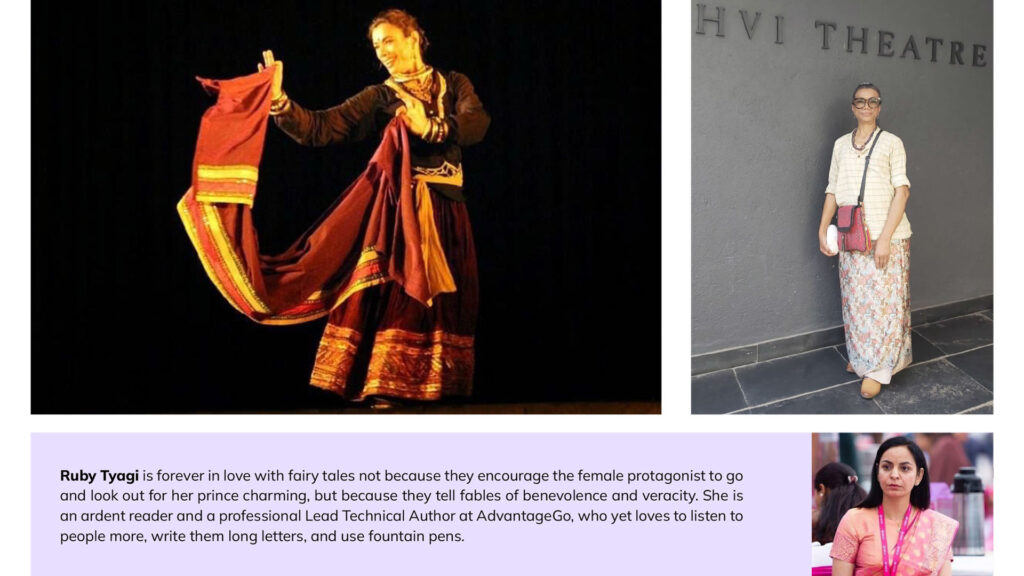
As a fabulous storyteller, Vibha Rani stands tall with all her implausible accomplishments whilst she speaks loudly the quote by the American writer and psychotherapist, Amy Bloom, “You are imperfect; permanently and inevitably flawed. And you are beautiful.” She is a phenomenal living example of the fact that beauty isn’t restricted to a chosen few, who happen to meet societal requirements, but is an expression of the marvel of the human existence and the doting heart; beauty is within all of us, as can be seen with the naked eye and felt within closed eyelids.
Vibha Rani is for sure glory of the Indian folklore!


